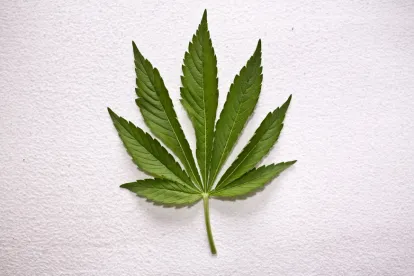The haze of Springfield’s recent legislative session has cleared, and Illinois has become the latest state poised to legalize marijuana. Like many other businesses throughout the country, Illinois employers will be faced with the complexity of enforcing their drug and substance abuse policies while their employees have the legal right to use marijuana outside of the workplace.
The Illinois Cannabis Regulation and Tax Act, once signed by Governor Pritzker, will go into effect on January 1, 2020. Although the law provides employers with certain guidance on what they can and cannot do, it leaves open questions as to how employers can manage their workplace policies.
While the bill has several provisions that may apply to employers, this post focuses on three of the most important.
-
How Employers Can Enforce Their Drug-Related Policies
Employers may designate the workplace a drug-free zone. In fact, under the law employers may adopt a “reasonable” zero tolerance or drug free work place policy, a drug testing policy, and/or a policy that prohibits smoking, consumption, storage, or use of marijuana in the workplace or while on call.
Two definitions are important to this point. First, employers should understand how the bill defines “workplace” and “on-call,” so that they know how to draft and apply their drug-free workplace policies.
The law broadly defines “workplace” as the employer’s premises including all real property, buildings, and parking areas under the employer’s control. This definition includes any area employees use to perform their work and could include a rental car or a client’s home if the employee travels for work. Employers should consider revising this definition in their written employment policy.
Further, employers can enforce their drug-free policies when an employee is on-call. An employee is on-call when the employee has at least 24 hours’ notice that the employee is on standby or otherwise responsible for performing work-related tasks. If an employee is on-call, the employer’s policies would apply as if the employee were at work.
Employers face a unique challenge when enforcing their zero-tolerance policy. For example, marijuana can stay in a person’s system a lot longer than alcohol and other drugs. It would be possible that an employee legally consumes marijuana when he or she is off-duty, but then two days later, fails a drug test. Employers may need to be sensitive about whether they can discipline or terminate an employee in that situation.
-
How Employers Can Respond to Employees Under the Influence
The new law does not change the fact that employers may prohibit employees from being under the influence of marijuana while working. This requires a judgment call. Employers may consider an employee to be under the influence if the employer has a “good faith belief” that the employee is exhibiting symptoms limiting the employee’s ability to complete duties. The bill includes examples of symptoms, including slurred speech, irrational or unusual behavior, and decreased physical dexterity or agility.
But if an employer elects to discipline or terminate an employee who appears to be under the influence, the employer must give the employee a reasonable opportunity to prove otherwise. The law does not provide clear guidance on how an employee can refute an employer’s good faith belief. What is clear, however, is that if an employer has a “good faith belief” an employee is under the influence and the employee cannot refute the employer’s belief, then the employee cannot sue the employer based on the discipline or termination.
-
How Employers Can Understand Right to Privacy in the Workplace Amendments
The bill also amends key provisions in the Illinois Right to Privacy in the Workplace Act. Before the amendment, the Right to Privacy Act prohibited Illinois employers from discriminating against employees for their use of certain lawful products, like alcohol and cigarettes, outside of work.
Now, marijuana is considered one of those “lawful products.” As a result, an employer may not refuse to hire, or fire an employee who uses marijuana on their personal time. Additionally, an employer cannot punish an employee concerning their compensation, terms, privileges, or conditions of employment because of the employee’s use of marijuana when he or she is not at work or on-call.
Because of this change, employees will now have the right to file a claim with the Illinois Department of Labor if they believe their rights under the Right to Privacy Act have been violated. If the claim is not resolved before the Department of Labor, the employee will have the right to file a lawsuit against their employer and seek actual damages, as well as attorneys’ fees and costs in court.
Key Takeaways
This law creates a challenge for employers. On the one hand, the law allows for employers to create zero-tolerance drug policies and enforce drug testing policies. On the other hand, the law prohibits employers from punishing employees for the lawful use of marijuana when the employee is not working or is not on-call. If an employee tests positive for marijuana, but is not exhibiting signs of being under the influence, an employer may be vulnerable to legal action if the employer disciplines or terminates the employee. The tension between these provisions will likely need to be answered by additional legislation, rulemaking or the inevitable court decision.
Because the new law does not go into effect until January 2020, employers have time to prepare to tackle these challenges. At a minimum, employers should review and update workplace substance abuse policies, communicate those revisions to employees, and train supervisors and managers on how to respond to positive marijuana tests.



 />i
/>i
